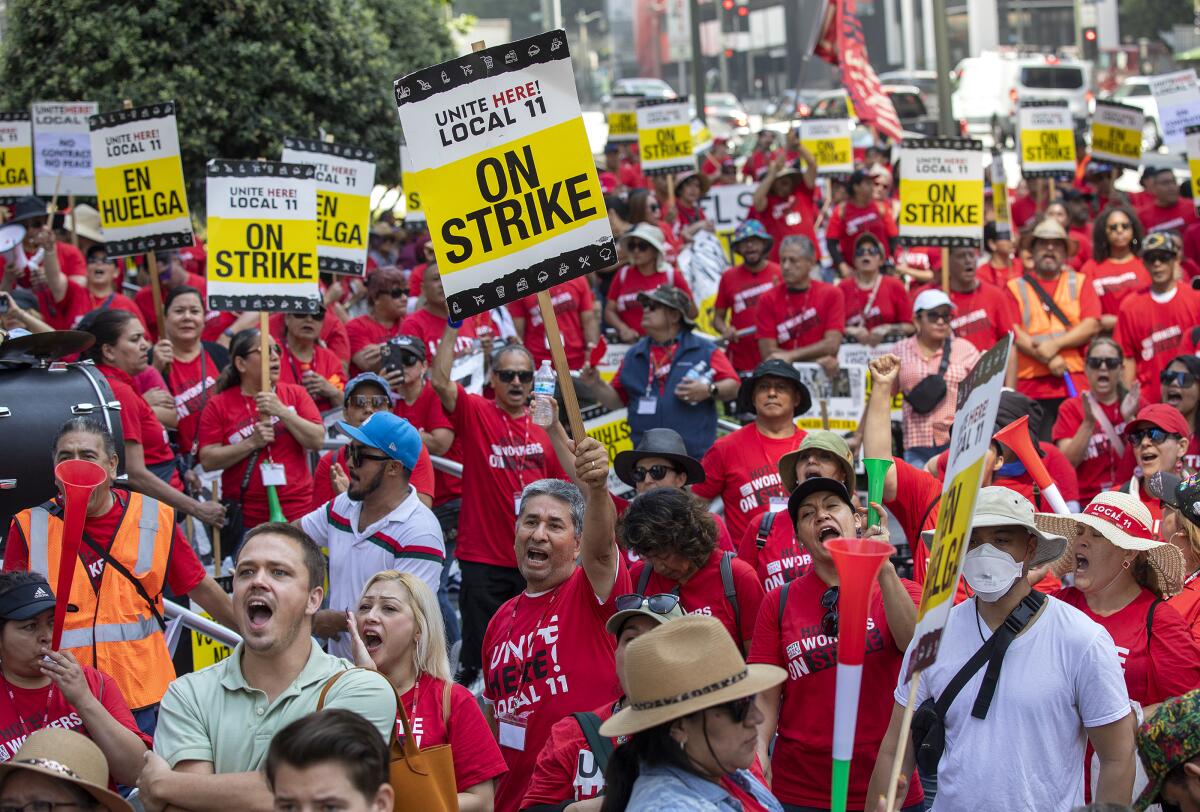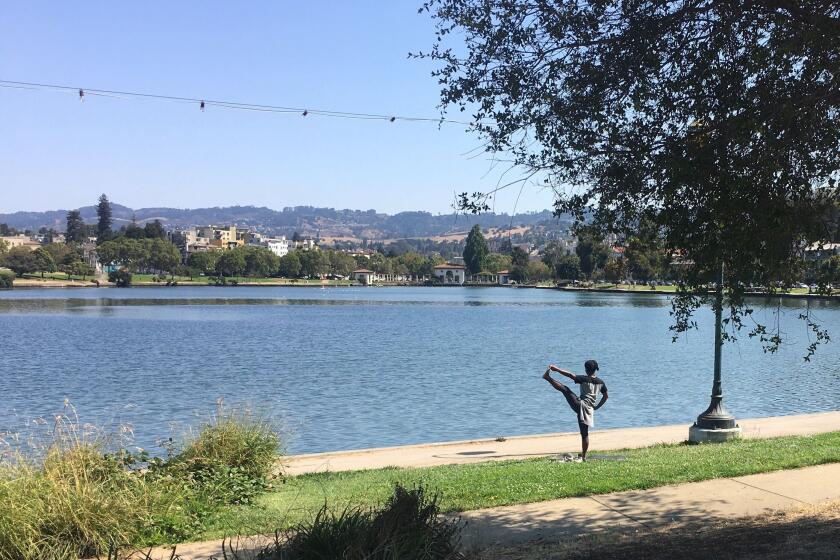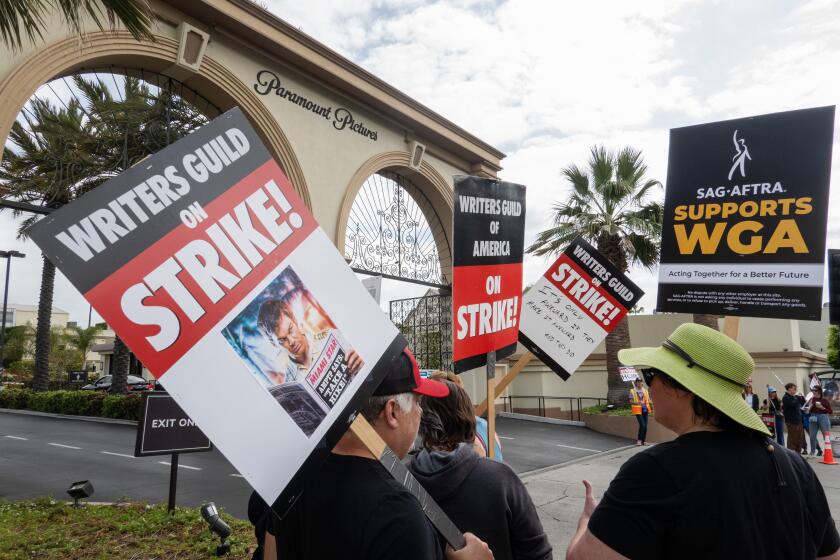Editorial: This Labor Day, work-life balance is on the table

- Share via
The United Auto Workers union authorized a strike later this month if it can’t reach deals with the Big Three Detroit carmakers, General Motors, Ford Motor and Stellantis. Among the union’s proposals: a four-day workweek with five-day pay.
The UAW’s argument is that demanding schedules, including mandatory overtime, along with stagnant wages and the lingering effects of the pandemic have pushed its members to their breaking point. Now is the time to end the grueling work culture that forces people to put their job ahead of their needs.
“If COVID did anything, it made people reflect on what’s important in life, and it sure as hell isn’t living in a factory,” UAW President Shawn Fain said in a video update to members last month. “Workers are working longer hours, they’re working harder than they ever have for less money. Something’s gotta give here. Workers don’t have time to do the things that make them whole, to pursue hobbies or take care of family issues, because their life evolves around work.”
This is the moment to reimagine work and, hopefully, break the American obsession with overwork.
The pandemic did lead to a rethinking — and upheaval — of work and workplaces. From the Great Resignation, when tens of millions of workers resigned, often for a job change, to quiet quitting or the idea of doing the bare minimum of one’s job, the last few years have put a spotlight on what workers want and need from their jobs, and what they’re not getting. That includes attaining a healthy work-life balance.
Some employers have embraced the movement to adopt a four-day workweek as a way to retain employees in a competitive labor market and reduce burnout. Companies that have adopted the model, including crowdfunding platform Kickstarter and online thrift store ThredUP, say they find workers can be as productive in four days as in five, in part because they are more rested and focused.
Of course, pay and benefits are central to any discussion of working conditions. The 32-hour workweek idea may ultimately take a back seat to other UAW demands, including wage hikes and an end to the tiered scale that pays new hires less. Still, by making the four-day workweek a central part of its platform, the UAW is drawing much-needed attention to the need for better work-life balance protections.
About half of the big strikes in the U.S. this year have taken place in California, with the most consequential centered in Los Angeles — now including the strike announced by SAG-AFTRA.
Last year, railroad employees threatened to strike over the lack of guaranteed sick days. To avoid a strike, President Biden and Congress forced the unions to accept new contracts that raised pay but didn’t provide paid sick leave. However, political pressure and public shaming continued, and now about 60% of union railroad employees have paid sick leave and more predictable rest schedules. There’s been a recognition among railroads that keeping workers healthy and rested was better for morale, turnover and, ultimately, the companies’ profits by ensuring reliable service.
In the “hot labor summer” strikes across Los Angeles by hotel staff, city employees, actors and Hollywood writers, there’s an underlying commonality: the desire to make sure their jobs provide a good quality of life. And that means the ability to afford and have time for a life outside of work.
Trying to work 24/7 takes a toll on health and productivity. Workers need to know when to get off the clock.
Unite Here Local 11 has made the case that the region’s high housing costs have priced hotel workers out of the cities where they work, forcing them to commute hours each day, sleep in their cars and live in overcrowded conditions. Some teeter on the edge of homelessness, despite working long hours. The union has pushed for higher wages, along with a fee on hotel bills to help fund affordable housing for hotel workers.
SAG-AFTRA and the Writers Guild of America have argued the entertainment business is at a tipping point and the strikes are necessary to ensure people can make a stable career in Hollywood. Historically, actors and writers have been able to attain a middle-class lifestyle, but shifts in the industry have whittled down incomes, limited career advancement and forced workers to hustle from gig to gig to maintain the same standard of living.
The focus on work-life balance is welcome, particularly as technology has blurred the lines between work and personal time and employees are more often expected to be “on” when they’re supposed be off. It’s in the interest of employers, workers and society to encourage and protect the ability of people to live a full life, outside of their job.
More to Read
A cure for the common opinion
Get thought-provoking perspectives with our weekly newsletter.
You may occasionally receive promotional content from the Los Angeles Times.













